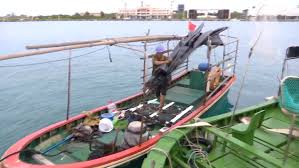News Flash
News Flash

Vietnam, Aug 24, 2025 (BSS/AFP) - Vietnam said on Sunday it plans to evacuate more than 300,000 people and has cancelled over a dozen domestic flights as Typhoon Kajiki approaches.
More than 325,500 residents in five coastal provinces will be moved to schools and public buildings turned into temporary evacuation centres, authorities said, while national carrier Vietnam Airlines and Vietjet announced the flight cancellations.
The storm is set to make landfall on Vietnam's east coast on Monday.
"The situation is extremely dangerous and not safe for any vehicles or structures such as tourism or fishing vessels and aquaculture raising facilities," said disaster authorities working under the ministry of agriculture and environment.
Typhoon Kajiki is sliding slowly past China's southern coast with maximum sustained wind speeds of 90 knots (167 kilometres per hour), according to the Joint Typhoon Warning Center, and is expected to strengthen further.
Extreme downpours are expected in parts of Vietnam's Ha Tinh and Nghe An provinces on Monday and Tuesday, according to China's Meteorological Administration, with strong winds possibly affecting power facilities, transportation and other industries.
It is the fifth tropical storm to affect Vietnam this year, with more than 100 people killed or missing from natural disasters in the first seven months of 2025, according to the agriculture ministry,
Economic losses have been estimated at more than $21 million.
China's tropical resort of Hainan upgraded its emergency response to the highest level and evacuated some 20,000 residents on Sunday, state news agency Xinhua said.
The island's main city, Sanya, closed scenic areas and halted business operations.
Vietnam suffered $3.3 billion in economic losses last September as a result of Typhoon Yagi, which swept across the country's north and caused hundreds of fatalities.
Scientists say human-caused climate change is driving more intense and unpredictable weather patterns that can make destructive floods and storms more likely, particularly in the tropics.